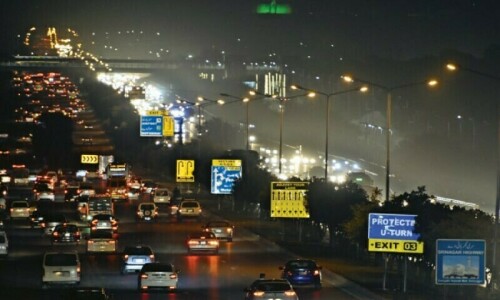
ISLAMABAD: A Polish climber has fallen to death while attempting to summit a peak in the Shimshal valley of Hunza. His teammate was rescued on Friday, the Alpine Club of Pakistan (ACP) confirmed.
It said Ilczuk Michal Jakob and Bodganski Jakob were attempting to scale the unknown 6,200-metre-high peak in the Ghujerav valley of Shimshal in Hunza, Gilgit-Baltistan.
Accompanied by a local tour guide, the duo had reached the base camp and taken on the challenge to attack the technically harder south face of the unclimbed peak.
The local guide was sent back to his village at a day’s walk from the base camp. He was to return after three days to collect the two climbers.
However, Ilczuk Michal Jakob fell and was seriously injured. “His partner Bodganski Jakob used a satellite phone to call his trekking company back home in Poland which then contacted the Polish embassy in Islamabad and a rescue mission was launched,” said Abdullah, a tour operator from Shams Alpine Tour Company.
Duo was attempting to scale an unknown 6,200-metre-high peak in Ghujerav valley of Hunza, ACP says
Veteran mountaineer Shaheen Baig, a K2 summiteer, led a seven-member rescue team from Shimshal, he said.
Abdullah told Dawn that Bodganski Jakob managed to descend and was then rescued by the team, brought down to the base camp and then flown to Gilgit in an army helicopter.
“His teammate will likely rest in peace on the mountain. The rescued climber did not sustain injuries,” he said.
ACP Secretary Karrar Haidri said the two climbers were climbing in an open area in the Karakoram Range. They were attempting to summit Dhi Sar and got stuck at 5,800 metres.
“Unlike the restricted areas such as K2 and Broad Peak, trekkers and climbers do not require a no-objection certificate (NOC) or a briefing by the Alpine Club.”The rescue team leader reached the base camp of the peak on Thursday. Four members from the rescue team made the first attempt on Friday morning to rescue the stranded Polish climber. The second group of the rescue team stayed at the base camp as a backup.
According to the ACP, a lot of adrenaline junkies prefer to climb less known 5,000 metres to 7,000 metres high mountains in Pakistan. Such peaks, of which there are hundreds in Pakistan, are a lot more technically challenging than some of the highest mountains in the world and thus attract a unique category of climbers.
Such climbers often also get the credit of naming an unknown peak after conquering it.
Published in Dawn, October 3rd, 2020














































Dear visitor, the comments section is undergoing an overhaul and will return soon.